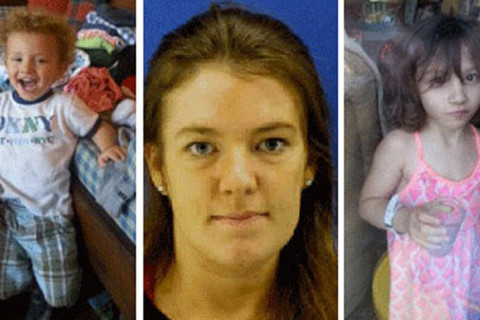WASHINGTON — A bill proposed in Annapolis aims to change how defendants who are determined incompetent to stand trial are prosecuted.
The father of two missing Montgomery County children, who presumes they were killed by their mother, testified in favor of Senate Bill 579, which would allow a judge the discretion to delay dropping criminal charges to protect minors.
“I don’t want to take anyone’s rights away; I just don’t want perpetrators to have any more rights than my children or anyone else’s,” said Troy Turner during his testimony in front of the Maryland Senate Judiciary Committee on Wednesday.
His 3-year-old daughter, Sarah, and 2-year-old son, Jacob, went missing in their mother’s care in September 2014. Since then, doctors have declared the mother, Catherine Hoggle, not competent to stand trial. However, if that assessment remains unchanged, the murder charges against her will be dropped after five years, according to current law.
Turner expressed concerns over the safety of his 9-year-old son, whom he shares with Hoggle, if she is released.
Hoggle, who was indicted on murder charges in 2017, has expressed she wants the charges dropped.
“Ms. Hoggle’s charges would be dismissed and she might be released from involuntary detention even if she is considered dangerous to her potential minor victims,” said bill sponsor state Sen. Susan Lee, D-Montgomery County.
She testified that five years should be used instead as a legal metric for less serious crimes.
“We’re not arguing for the elimination of due process. We’re just asking for those extraordinarily dangerous cases to qualify for an extraordinary cause to save lives. We need more protections under the law,” Lee said.
However, others oppose the bill that would repeal or amend current law regarding the rights of the mentally ill in the judicial system.
“The current law has undergone many iterations over the years,” noted Mary Piso, with the Maryland Office of the Public Defender, which stands in opposition to Lee’s bill.
“This bill fails to account for mandated due process protections and, in reality, it provides no more rights for victims,” Piso said, while reiterating that simply because charges are dropped, that does not mean a defendant is released from confinement or would be a danger to a child.







